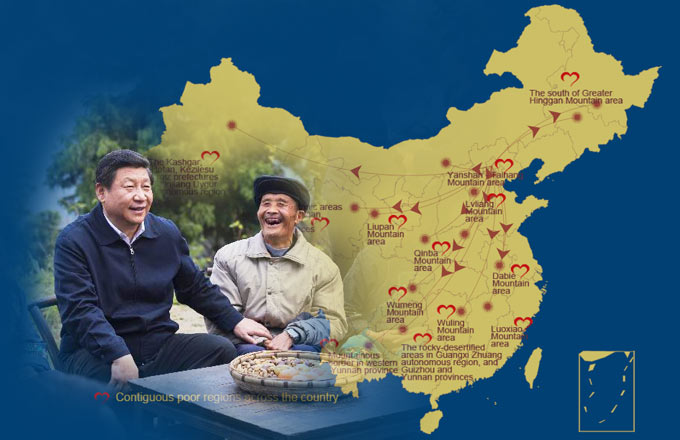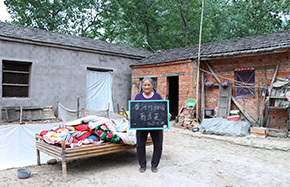Database of success stories helps alleviate poverty
The Chinese government launched on Friday a free database of poverty alleviation cases, aiming to share innovative and successful solutions from China and other developing countries and contribute to the global effort to reduce poverty.
The database, named the Global Poverty Reduction Online Knowledge Sharing Database, works as a portal for knowledge sharing among developing nations. It presents cases in a user-friendly way, while allowing users to upload their own cases, so as to create "a truly global poverty reduction database".
Guo Weimin, deputy director of the State Council Information Office, said at the 2017 China Poverty Reduction International Forum, where the database was released, that knowledge sharing is crucial to the global fight against poverty.
"There are still more than 700 million people living in poverty in the world today. Poverty reduction is a global strategy that calls for global action. Using information technology to enhance knowledge sharing is an important initiative to help reduce poverty and boost cooperation among developing nations." Guo said.
"We should make good use of the platform to collect new cases and good practices from across the world, and help developing countries find solutions to poverty," he added.
The database is part of the Global Poverty Reduction and Inclusive Growth Portal, an online platform for knowledge sharing initiated by the World Bank. Over 40 global think tanks and research institutions will contribute to the database.
Bert Hofman, World Bank director for China, Mongolia and the Republic of Korea, reviewed China's achievement in reducing poverty and acknowledged the value of the nation's approaches.
"China has achieved phenomenal success in reducing poverty, lifting hundreds of millions of people out of poverty between 1981 and 2015, the fastest rate of poverty reduction ever recorded in human history," Hofman said. "China's experience in poverty reduction can offer useful lessons to other developing countries."
Chen Zhigang, deputy director of the State Council Leading Group Office of Poverty Alleviation and Development, said China's progress in reducing poverty is made possible by a set of elements including the nation's strong leadership, comprehensive policies, targeted measures, increased investment and an incentive mechanism.
Vincent Martin, the Food and Agriculture Organization's representative in China and the Democratic People's Republic of Korea, applauded the database's possible role in pushing forward the United Nations' Sustainable Development Goals.
"Invaluable poverty reduction policies and know-how generated in China and elsewhere should be made available to the international community to help achieve the Sustainable Development Goals." Martin said. "In that regard, the launch of the online case database is a key step forward, and innovation should be embedded in the sharing of policies and best practices."

















